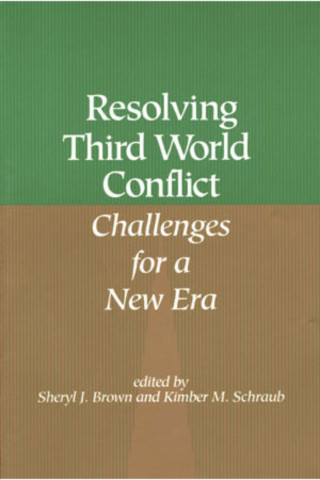Sheryl J. Brown
Sheryl J. Brown is chief information officer and directs the information and communications technologies office and the Virtual Diplomacy Initiative. In addition, she is the acting director of the Jennings Randolph Fellowship Program and the Institute's library. Brown is editor of the Virtual Diplomacy Series and author of articles on theoretical perspectives and applications of information and communications technologies in international conflict prevention, management, and resolution. Since 1991, she has been an adjunct instructor of classical Greek history at Georgetown University. She earned a double doctorate in political philosophy and literature from the University of Dallas (1985), where she was a fellow at the Institute for Philosophic Studies.
Author's Books
Now that the Cold War has ended, the Third World may be freer of external influences, but is it any more stable? Indeed, while U.S.-Soviet rivalry sometimes exacerbated conflicts in Asia, Africa, and Latin America, just as often it restrained interstate – and even intrastate – violence.
In this wide-ranging exploration of today’s Third World, leading scholars and policymakers confront two questions that frame the search for peace: What are the fundamental sources of conflict in the Third World? How can such conflict be prevented or resolved? Answers to the first question focus on Third World democracy, environmental degradation, foreign aid and economic development, arms proliferation and control, and the distribution and treatment of minorities. The question of how to maintain or regain peace prompts consideration of the past, present, and future roles of religion, democracy, the United Nations, third-party mediation, and superpower engagement.
Expert and insightful, the contributors present a series of informative and stimulating analyses that capture the multifaceted nature of Third World conflict and the prospects for its resolution. The volume concludes with a provocative discussion of the choices facing U.S. policymakers as they reformulate their Third World policies in the post-Cold War era.

